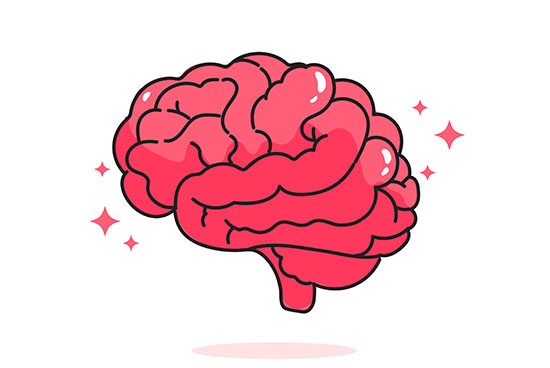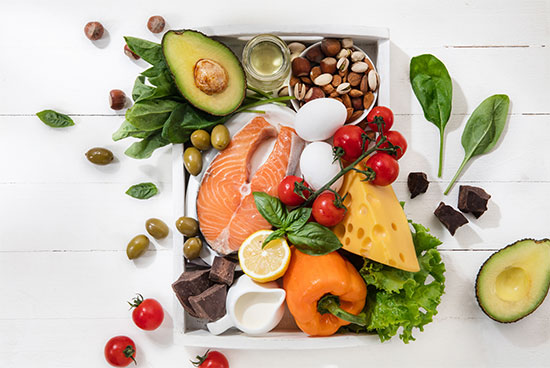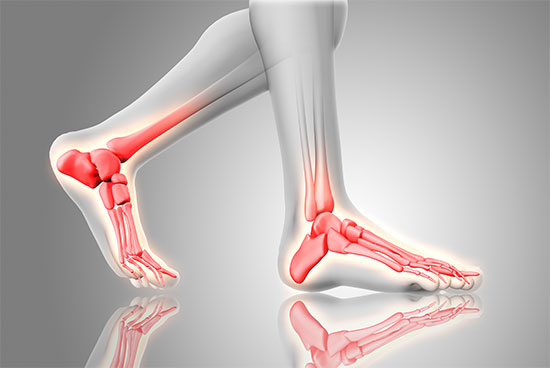Eating eggs has numerous benefits and it is a wise decision to incorporate eggs into your daily dietary intake. No matter whichever form you take, one thing is for sure, is that the consumption of eggs will provide you with the right source of protein, calcium and several vitamins and nutrients. With the help of this article, we will try to figure out some of the benefits of eating eggs, if you consume them on a regular basis. People have been enjoying and nourishing themselves with eggs for ages, and eggs to have shown a significant choice for every person’s dietary intake. Both the egg white and yolk are rich in nutrients, including proteins, vitamins and minerals. The yolk contains fat-soluble vitamins consisting of vitamins D and E and essential fatty acids; while most of the protein is found in the egg white.
Loaded with numerous eggs have stated themselves as an important and versatile choice for cooking, and their particular chemical make-up is the key to many important health benefits. There are lots of different types of egg, the most common being chicken, while more gourmet choices might include duck, goose and quail eggs are also preferred in many places.
Top 10 Health Benefits of Eating Eggs
1.) Highly Nutritious
 Eggs are highly nutritious and this is one of the benefits of eating eggs. Whole eggs are nutritionally rich, supplying almost every nutrient you need. They are useful sources of some of the hard-to-get nutrients like vitamins D and B12 as well as the mineral iodine. Eggs are considered the utmost source of protein as they contain all nine essential amino acids, which we must obtain from our diet. Besides all consumption of eggs also offers you higher omega-3 fatty acids as well as fat-soluble vitamins such as vitamins A and E.
Eggs are highly nutritious and this is one of the benefits of eating eggs. Whole eggs are nutritionally rich, supplying almost every nutrient you need. They are useful sources of some of the hard-to-get nutrients like vitamins D and B12 as well as the mineral iodine. Eggs are considered the utmost source of protein as they contain all nine essential amino acids, which we must obtain from our diet. Besides all consumption of eggs also offers you higher omega-3 fatty acids as well as fat-soluble vitamins such as vitamins A and E.
2.) Supports Heart Health
 Supporting heart health is also one of the benefits of eating eggs. Eggs are rich in several nutrients that promote heart health, such as betaine and choline. Studies suggested that eating one egg a day may reduce the risk of heart disease and stroke, although experts stress that eggs need to be consumed as part of a healthy lifestyle in order to be beneficial.
Supporting heart health is also one of the benefits of eating eggs. Eggs are rich in several nutrients that promote heart health, such as betaine and choline. Studies suggested that eating one egg a day may reduce the risk of heart disease and stroke, although experts stress that eggs need to be consumed as part of a healthy lifestyle in order to be beneficial.
3.) Great Source of Choline
 Eggs are one of the best dietary sources of choline. This little talked about nutrient is needed by every one of us for the formation of cell membranes and for brain function, including memory. It’s especially important for women during pregnancy and breastfeeding when an adequate supply of choline is essential for normal brain development.
Eggs are one of the best dietary sources of choline. This little talked about nutrient is needed by every one of us for the formation of cell membranes and for brain function, including memory. It’s especially important for women during pregnancy and breastfeeding when an adequate supply of choline is essential for normal brain development.
4.) Supports Eye Health
 Supporting eye health is also one of the benefits of eating eggs. As we age it’s normal for our vision to start to deteriorate but there are some useful nutrients, obtained from a balanced diet, which may help support eye health. Eggs are one example of an eye-friendly food. The yolk contains large amounts of carotenes, of particular note, lutein and zeaxanthin, which are important for preventing macular degeneration and cataracts. Apart from all, eggs are also a source of vitamin A which is key for good eyesight.
Supporting eye health is also one of the benefits of eating eggs. As we age it’s normal for our vision to start to deteriorate but there are some useful nutrients, obtained from a balanced diet, which may help support eye health. Eggs are one example of an eye-friendly food. The yolk contains large amounts of carotenes, of particular note, lutein and zeaxanthin, which are important for preventing macular degeneration and cataracts. Apart from all, eggs are also a source of vitamin A which is key for good eyesight.
5.) Supports Weight Management
 Managing your weight is also one of the benefits of eating eggs. Eggs are rich in protein, which is more filling than either fat or carbohydrate. As a food choice, eggs score well, being high on the satiety index, a measure of how filling a food is. Studies revealed that an egg breakfast is more sustaining than the equivalent calorie-counted carb breakfast, as consumption of eggs for breakfast helps to reduce your calorie intake later in the day.
Managing your weight is also one of the benefits of eating eggs. Eggs are rich in protein, which is more filling than either fat or carbohydrate. As a food choice, eggs score well, being high on the satiety index, a measure of how filling a food is. Studies revealed that an egg breakfast is more sustaining than the equivalent calorie-counted carb breakfast, as consumption of eggs for breakfast helps to reduce your calorie intake later in the day.
6.) Great Source of Iron
 Eating eggs replenishes your iron deficiency, as this is one of the best benefits of eating eggs. Many people with mild iron deficiency experience vague symptoms of tiredness, headaches and irritability. Iron is the carrier of oxygen in the blood and plays a pivotal role in immunity, energy metabolism and many other functions in the body. The iron in egg yolk is in the form of heme iron, the most readily absorbable and usable form of iron in the food and more absorbable than the form of iron in most supplements.
Eating eggs replenishes your iron deficiency, as this is one of the best benefits of eating eggs. Many people with mild iron deficiency experience vague symptoms of tiredness, headaches and irritability. Iron is the carrier of oxygen in the blood and plays a pivotal role in immunity, energy metabolism and many other functions in the body. The iron in egg yolk is in the form of heme iron, the most readily absorbable and usable form of iron in the food and more absorbable than the form of iron in most supplements.
7.) Offers Best Quality Protein
 The benefits of eating eggs replenish you with the best quality of protein for your dietary intake. Protein is one of the most important elements of our diet. Our bodies use protein to build new and repair old tissue. Eggs are champions at providing high-quality protein. As amino acids are the building blocks of protein, so nine of these amino acids cannot be manufactured by the body and must be derived from the diet. A complete protein food contains enough of these nine essential amino acids to promote growth and maintain body tissue.
The benefits of eating eggs replenish you with the best quality of protein for your dietary intake. Protein is one of the most important elements of our diet. Our bodies use protein to build new and repair old tissue. Eggs are champions at providing high-quality protein. As amino acids are the building blocks of protein, so nine of these amino acids cannot be manufactured by the body and must be derived from the diet. A complete protein food contains enough of these nine essential amino acids to promote growth and maintain body tissue.
8.) Promotes Bone Health
 If you are looking for natural food sources of vitamin D then eggs are certainly the ones that you should look for. Eggs are one of the few natural food sources of vitamin D. Vitamin D is essential for calcium absorption and for maintaining optimum bone health. Eggs, therefore, play a supporting role in the prevention of osteoporosis together with dairy products as a primary source of calcium.
If you are looking for natural food sources of vitamin D then eggs are certainly the ones that you should look for. Eggs are one of the few natural food sources of vitamin D. Vitamin D is essential for calcium absorption and for maintaining optimum bone health. Eggs, therefore, play a supporting role in the prevention of osteoporosis together with dairy products as a primary source of calcium.
9.) Promotes Healthy Hair and Nails
 The hair and nails reflect many biochemical imbalances and shortages in the body. Consumption of eggs helps to promote healthy hair and nails because of their high content of sulphur-containing amino acids and the wide array of vitamins and minerals. Many people report faster-growing hair after adding eggs to their diet, especially if they were previously deficient in zinc, sulphur, vitamin B12 and vitamin A-related foods.
The hair and nails reflect many biochemical imbalances and shortages in the body. Consumption of eggs helps to promote healthy hair and nails because of their high content of sulphur-containing amino acids and the wide array of vitamins and minerals. Many people report faster-growing hair after adding eggs to their diet, especially if they were previously deficient in zinc, sulphur, vitamin B12 and vitamin A-related foods.
10.) Reduces Bad Cholesterol and Increases Good Cholesterol
 A high level of bad cholesterol in our body increases the chances of many cardiovascular diseases, which shows many health concerns. However, consumption of eggs does raise cholesterol levels in our body, but it is the good cholesterol (HDL) that reigns. HDL is high-density lipoprotein and it has been suggested that elevated levels of HDL lower the risk of stroke and heart disease. Many studies have confirmed that eating two eggs a day for six weeks increases HDL levels by 10%.
A high level of bad cholesterol in our body increases the chances of many cardiovascular diseases, which shows many health concerns. However, consumption of eggs does raise cholesterol levels in our body, but it is the good cholesterol (HDL) that reigns. HDL is high-density lipoprotein and it has been suggested that elevated levels of HDL lower the risk of stroke and heart disease. Many studies have confirmed that eating two eggs a day for six weeks increases HDL levels by 10%.
Disclaimer:
The information contained in this article is for educational and informational purposes only and is not intended as a health advice. We would ask you to consult a qualified professional or medical expert to gain additional knowledge before you choose to consume any product or perform any exercise.








